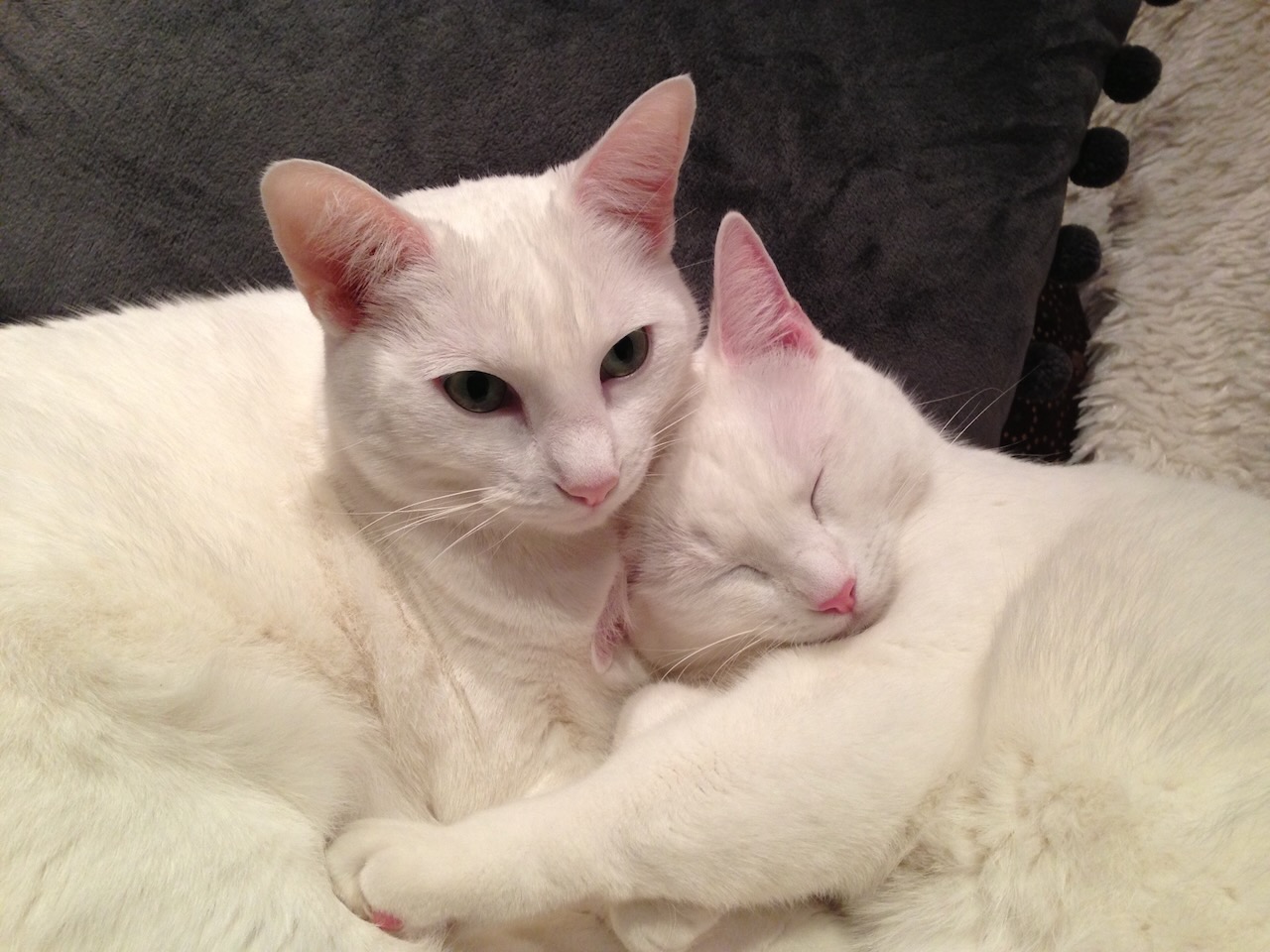Bubka

Gwen and I adopted Bubka (left) and her sister Masha in November 2008, when they were about three months old. When Gwen and I got together, she had two cats and I had one; by the time we adopted the girls, old age had taken two of our old cats and the surviving cat, Kevin, was lonely.
On our way to the cat-rescue place, Gwen said, “I don’t want to get a kitten.” We wound up with two. They were both so easygoing and affectionate it seems inevitable in hindsight. We named Bubka after the famous Ukrainian pole-vaulter, Sergey Bubka, because she was such an energetic jumper when she was little. She grew out of that eventually and became mostly placid.
Bubka took to Kevin immediately. He was initially stand-offish toward both the new kids, but she wore him down after just a few days, and her companionship made his remaining years much happier.
Because they looked so much alike, it was hard to tell them apart at a glance, and we took to calling both Masha and Bubka “kitten,” especially when they were being naughty. And because they were separated from their mother before they were weaned, they continued to exhibit kittenish behavior all their lives. We never stopped calling either of them “kitten.”
Gwen insists I was Bubka’s favorite person, and she’s probably right. She would jump up on the bed in the morning and swat at my nose or bite my ear to get my attention. Once I was up, she would insist on being carried around for a few minutes. If Gwen and I were watching TV from the couch, she’d often be perched on the back cushion behind my head.
Bubka had been diagnosed with kidney disease years ago, but her condition had been stable up until about March, when she had a health crisis. She spent a few days at the vet and we learned that her kidney function had declined suddenly. We managed her health aggressively with drugs and subcutaneous fluids we administered at home, but we knew her condition was only going to get worse. For a while, it seemed she was getting worse very gradually, but by the time it was ready for us to go to Flipside, we could tell her decline was accelerating. On the Saturday of Flipside, Gwen came home, and the day after, I returned for the day so that we could euthanize her. It was clear the moment I saw her that it was time. She was very weak—she couldn’t walk more than a few steps at once. She had no interest in food. Her meow was all wrong. Her life wasn’t as long as it should have been, but it was the best possible version of her life.
Masha and Bubka were inseparable, cuddling together or tussling in what we called “pillow fights” due to their well-cushioned physiques. I have no idea how Masha will cope with her sister’s absence, but she had been avoiding Bubka as she declined over the past couple of months, perhaps out of some instinct to avoid disease.
Gwen and I are both wrecked. We’ve had a fair amount of practice with this. It never gets easier. I’ve been thinking about grief a lot, and why it is that we feel it so intensely with the death of a pet. I don’t know that I have the answer, but maybe it’s this: we’re responsible for everything in the lives of our pets. We make all the decisions, and want all of those decisions to be in their best interests. In this respect, they’re like children. But unlike children, we generally outlive them, and when the time comes to make the last decision—to euthanize them—there is no option that doesn’t feel like a betrayal. They’re constant presences in our lives for a long time, and love us uncritically, and when the end comes, there’s nothing we can do for them.